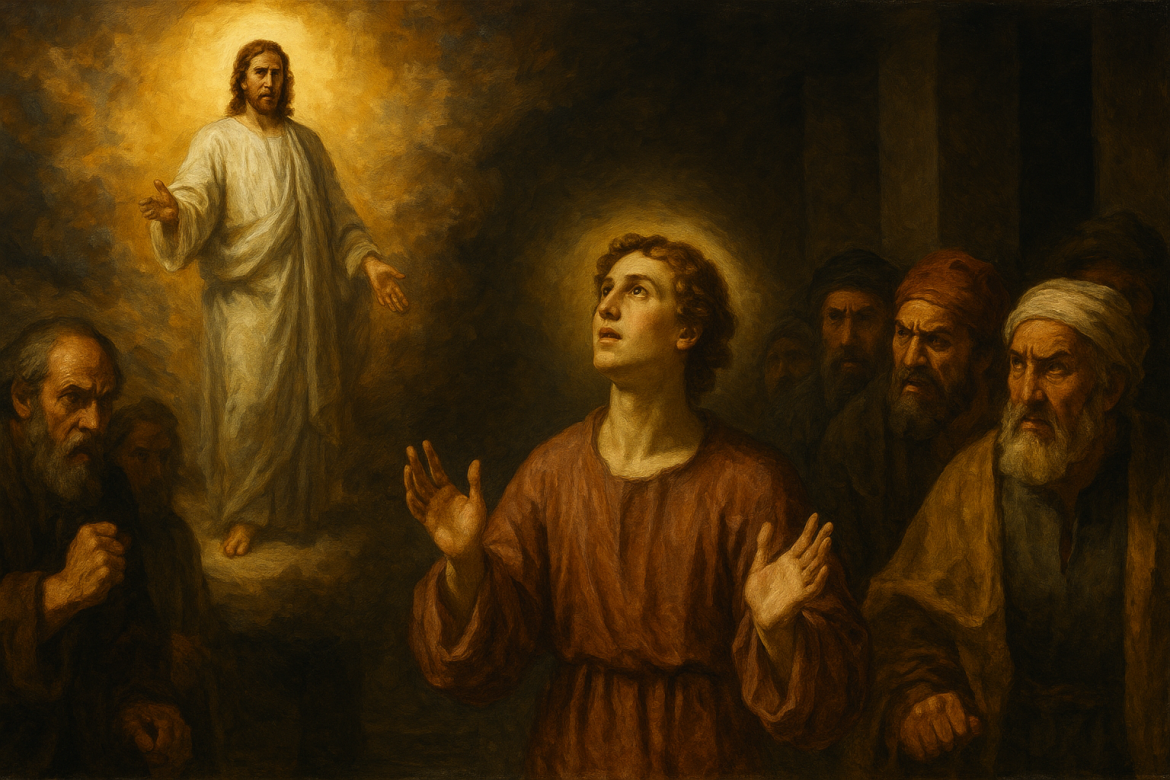The accusations against Stephen were significant: that Jesus would destroy the temple and change the customs handed down by Moses. To many devout Jews, this was blasphemy. But instead of denying or arguing the charges directly, Stephen reframes the conversation. He shows that the story of Jesus is not a break from the past but its fulfillment. He doesn’t argue Moses versus Jesus — he shows that Moses points to Jesus.
Stephen is essentially asking, “Have you truly understood your own story?”
A Journey Through Jewish History — With a Twist
Stephen begins his speech by recounting the foundational moments of the Jewish faith — from Abraham’s call out of Mesopotamia to the patriarchs, to Joseph in Egypt, to Moses leading the people out of slavery. These weren’t new stories to the Sanhedrin. They knew every line. But Stephen adds a piercing insight: every major figure God raised up was initially rejected by the people.
- Joseph was sold into slavery by his brothers — yet he became their savior.
- Moses was pushed away by the very people he was sent to rescue — yet he led them out of Egypt.
- And now, Jesus, the long-promised Messiah, has been rejected and killed.
Stephen’s message? “This is nothing new. You’ve always resisted the ones God sends.”
The Heart of the Matter: Spiritual Blindness
What makes Stephen’s speech so bold is not just his historical knowledge, but his diagnosis of spiritual failure. He doesn’t hold back:
“You stiff-necked people! Your hearts and ears are still uncircumcised. You are just like your ancestors—you always resist the Holy Spirit!”
These weren’t just angry words. They were truth spoken in love, out of deep concern. The people who were supposed to lead others to God had instead become barriers. They honored God with their rituals but missed His voice when it spoke clearly through the prophets — and ultimately through Jesus.
Jesus Was Always the Plan
Stephen doesn’t present Jesus as an unexpected twist. He shows that Jesus was present from the beginning — the fulfillment of promises made to Abraham, Isaac, Jacob, and Moses. This wasn’t a sudden change of course; it was the culmination of everything God had been doing.
The image of Abraham receiving promises while still childless, or Moses being sent to deliver an enslaved people, all points to something larger: God’s consistent pattern of rescue, leadership, and faithfulness — even in the face of rejection.
A Different Kind of Temple
Stephen also addresses the central issue of the temple. He quotes from Isaiah, saying that God does not dwell in houses made by human hands. His point? The temple, while important, was never meant to be the final home of God’s presence. Jesus now embodies what the temple once represented — God with His people. The old system had served its purpose, but something greater was now here.
This wasn’t a denial of tradition — it was a declaration of fulfillment.
A Christlike Death
Stephen’s speech ends not with a defense of his own life, but with an invitation to repentance. His final words mirror Jesus: “Lord, do not hold this sin against them.” It’s not just what he said that mattered, but how he said it — with grace, peace, and unwavering faith.
As the angry mob stoned him, Stephen’s eyes were fixed not on his persecutors, but on a vision of Jesus at the right hand of God. That vision became his final testimony — and a sign that heaven stood in solidarity with him.
Takeaways for Today
- Truth will often be resisted, especially by those with the most to lose. Stephen’s audience wasn’t ignorant; they were unwilling to accept a truth that disrupted their power and understanding.
- God’s pattern of working through rejected people continues today. We should never dismiss someone just because they don’t fit our expectations.
- Jesus isn’t a detour from the Old Testament — He’s its destination. Everything from Abraham to Moses points to Him.
- Courage looks like calm conviction. Stephen didn’t panic or lash out. He stood firm in the truth with a heart full of grace.
- We are called to forgive, even in our worst moments. Like Jesus, Stephen chose mercy over bitterness. That’s the mark of true faith.
A Final Word
Stephen’s speech is more than a courtroom defense. It’s a loving confrontation, a prophetic warning, and a reminder that knowing the story isn’t the same as understanding its message. The question for us today is: are we willing to hear hard truths, even when they challenge everything we’ve built our lives on?
May we, like Stephen, be bold in truth, generous in grace, and faithful to the end.

